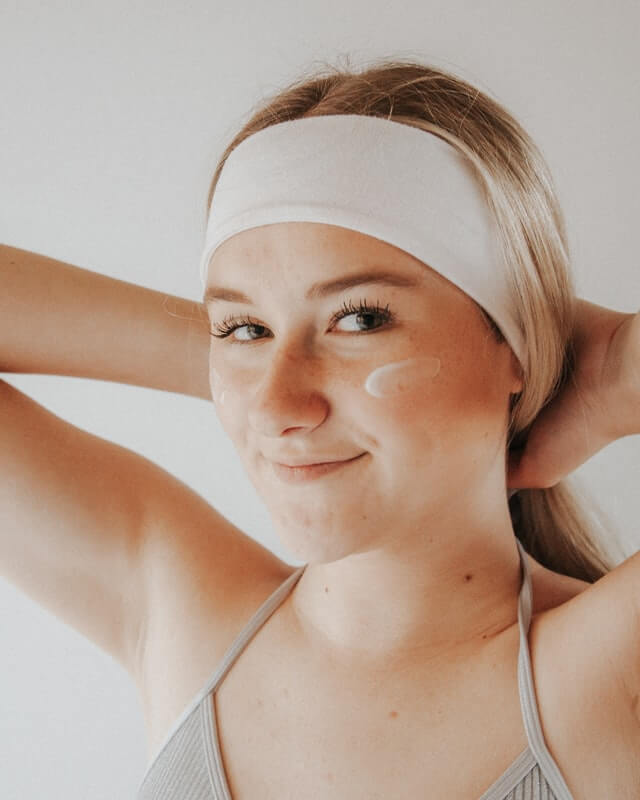What Is Probiotic Skincare?
“Probiotics” – you may have heard of this term before in a TV yogurt advert, but with regards to skincare, what does this actually mean? Within this article, we will be exploring the role of probiotics in promoting skin health and what to expect when you use them.
What are Probiotics and Why are they Important for the Skin?:
Scientifically speaking, probiotics are defined as live, non-pathogenic bacteria which provide multiple benefits to the human body. Although more commonly known in the food industry as a strategy to improve gut health, probiotics for the skin are currently perceived as an emerging yet fascinating new trend.
Our skin is a crowded place containing an ever-changing array of microbes. Each person has their own diverse and distinctive combination of these organisms, which collectively form the ‘skin microbiome’. On estimate, researchers believe that there are trillions of these microscopic critters living on our skin surface. In fact, there are actually more bacteria amongst us than there are our own human cells! However, don’t let this scare you- they actually play a vital role by serving as a physical barrier that protects our bodies from external harm and toxicity.
What are the Benefits of Probiotics?:
Unfortunately, the skin microbiome can be compromised by the presence of bad bacteria or, the underrepresentation of good bacteria. Certain factors like sun damage, pollutants, and irritative skincare products have been particularly noted to tip the scales in favour of harmful bacterial growth. Evidence suggests that an imbalanced or compromised microbiome can be a strong influence on the development of some of the world’s most common dermatological issues: acne, eczema, and rosacea – to name a few. As such, methods have to be implemented to attempt to restore the optimal balance of microbes and foster the flourishing of good bacteria on our skin.
This is where probiotics can come into play.
According to clinical studies, the addition of good bacteria on the skin can aid in the stabilisation of the microbiome. This can ultimately lead to a number of beneficial effects:
- Strengthen the skin barrier:
- The skin microbiome, along with the stratum corneum and the acid mantle, form the barrier of the skin. When an ample amount of the right bacteria are present within the microbiome, the skin barrier is reinforced and is able to successfully defend the body from environmental aggressors.
- Restore pH balance:
- Healthy skin possesses a slightly acidic pH between 4.2-5.6, which assists in the prevention of pathogenic bacterial colonisation and the maintenance of a moisture-rich environment. As we get older, our skin pH rises which heightens the risk of pathogen attack and infection. Luckily, probiotics like Lactobacillus increases lactic acid production which helps return skin pH back to healthy levels.
- Slow signs of ageing:
- Free radicals are unstable molecules that can accelerate signs of ageing by damaging DNA, lipids, and proteins like collagen. Fortunately, probiotics like Bacillus coagulans, have been indicated to produce compounds with free radical scavenging properties. Thereby, decreasing free radical presence and potentially slowing skin ageing.
- Improve signs of dryness and reduce acne:
- The application of Bifidobacterium and Streptococcus thermophilus has been shown to boost the skin’s production of ceramides (lipids/fats). Ceramides trap moisture in the skin which helps to manage dryness and eczema. Furthermore, a particular ceramide, phytosphingosine, exhibits direct antimicrobial activity against P. acnes (a bacteria widely recognised for its role in acne).
What is in Probiotic Skincare?:
With these benefits in mind, I suppose you’re now ready to give probiotic skincare a go? However, before you dive in, I should probably make it known that these “probiotic” products may not actually contain any probiotics at all.
Confused? Let me explain…
First of all, it is important to mention that the majority skincare products contain preservatives that inhibit microbial growth. So, when live microbes are added- they usually die very quickly. Adding preservatives is, of course, a good thing. After all, no one wants any toxic moulds or fungi growing in their skincare. But, whilst preservatives help to kill harmful microbes, they also help to destroy beneficial bacteria too. Unsurprisingly, this leads us to our next question: if live microbes can’t be added to skincare, then what exactly is inside these products?
When you scan through the ingredient list of probiotic skincare formulations, it is not uncommon to see ingredients like “Lactobacillus ferment” and “Streptococcus thermophilus ferment”. As you may have assumed, the italicised parts represent the type of bacterial strain utilised. Though, when succeeded by the word ‘ferment’, this actually refers to the compounds generated by the bacteria when it ferments a particular substrate. As such, when a product lists bacterial ferment as one of its ingredients, it doesn’t actually contain any live bacteria- only the contents produced by the organism instead!
On a similar note, ingredients such as “Bifida ferment lysate” are also typically found in probiotic skincare. In microbiology, organisms can undergo ‘lysing’ (a process where the bacterial membrane is broken down to release the contents within the cell). In this case, the microbe in question is killed and the components released from it are known as the ‘lysate’. Yet again, whilst derived from bacteria, it is not the same as a live probiotic. This, therefore, means that the products currently labelled as “probiotics”, do not actually comply with the true scientifically accepted definition.
What does Probiotic Skincare Actually Do?:
After that revelation, you are now probably wondering whether these dead bacterial components are capable of fostering the same promising effects that their live counterparts do. In short, the answer is both yes and no.
When comparing the effects of a live probiotic strain (Lactobacillus reuteri DSM 17938) and its lysates on human skin, one study found that both have an anti-inflammatory effect. But, it was only the live probiotic that was able to inhibit the growth of pathogenic microbes and thus induce the re-culturing of good bacteria on the skin.
However, certain lysates (e.g. Bifidobacterium longum lysate) have been suggested to significantly reduce skin sensitivity by increasing skin resistance against physical (heat, cold, wind) and chemical stimuli. Furthermore, the same lysate was indicated to decrease facial skin roughness by alleviating urea levels and inducing moisturisation. Therefore, despite not being able to re-balance the skin microbiome like probiotics can, lysates still offer soothing, nourishing, and hydrating properties to the skin- which can help to diminish signs of dryness and inflammation.
The Takeaway:
Probiotic products do not contain probiotics. But they do contain many probiotic-derived components which can facilitate the improvement of the skin. Using these products probably won’t solve all your skin issues completely, but there is no harm in adding one or two to your beauty routine.
Remember, regardless of how damaged your skin may be, you are still likely to have some good bacteria actively present. It is therefore a good idea to keep your resident microbes as healthy as possible by stepping away from irritative cleansers and replacing them with gentle or non-soap-based alternatives.
If any concerning symptoms persist or arise, we highly encourage you to consult with a professional for closer examination. Here at First Derm, we offer a fast and secure service with online board-certified dermatologists (skin doctors) ready to take a look at your skin concerns. Simply upload an image anonymously and we’ll get back to you within a matter of days!
About the Author:
My name is Rain Speake, a BSc Human Biology and MSc Healthcare Technology graduate from the University of Birmingham. I have an interest in skincare and dermatology and have previously undertaken research on the formulation of an anti-scarring spray for oral delivery. Beyond the lab, I enjoy keeping up to date with emerging scientific trends and communicating health-related topics to the public.
Sources:
1) https://pubmed.ncbi.nlm.nih.gov/21407241/
2) https://pubmed.ncbi.nlm.nih.gov/26220947/
3) https://pubmed.ncbi.nlm.nih.gov/20208051/#
4) https://www.sciencedirect.com/science/article/pii/S2352647515000155
5) https://www.ncbi.nlm.nih.gov/pmc/articles/PMC7956298/
6) https://onlinelibrary.wiley.com/doi/full/10.1111/exd.13950?saml_referrer
7) https://onlinelibrary.wiley.com/doi/full/10.1111/j.1600-0625.2009.00932.x
Image Courtesy:
- Photo by Content Pixie on Unsplash
- Photo by Cheyenne Doig on Unsplash
- Photo by Audrey Fretz on Unsplash
Ask a Dermatologist
Anonymous, fast and secure!

The Specialist doctor from the University Hospital in Gothenburg, alumnus UC Berkeley. My doctoral dissertation is about Digital Health and I have published 5 scientific articles in teledermatology and artificial intelligence and others.




